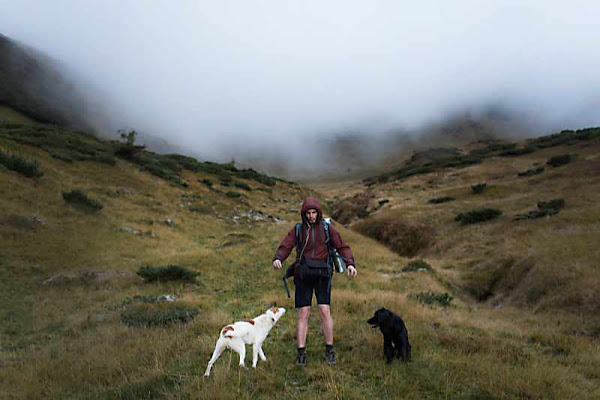
Take a break: Five reasons to escape to the Mexican Caribbean this winter

Commentary |
Airbnb is driving up housing costs for all of us
by Sonali Kolhatkar
Americans have been on a vacation binge since the easing of COVID-19 restrictions. In particular, the vacation rental company Airbnb is thriving. Late last year, the company posted its highest-ever profits.


A 2017 study of New York City by the watchdog group Inside Airbnb concluded that the Airbnb model also fuels racism in the housing market. “Across all 72 predominantly Black New York City neighborhoods,” the group found, “hosts are five times more likely to be white.” But the “loss of housing and neighborhood disruption due to Airbnb is six times more likely to affect Black residents.” To curb such inequities, New York City, which already had strict rules about short-term rentals and subleases, passed a law in 2023 requiring Airbnb to ensure that hosts obtain permission to rent out housing. If it fails to do so, both the host and the company are hit with hefty fines. While this means potentially higher hotel costs for out-of-town visitors, it could also free up rentals for long-term residents. According to The Guardian, this may already be happening, just months after the law went into effect in September. While cheaper vacation stays are certainly desirable for those of us who love to travel, vacationing is a privilege in the U.S. More than a third of Americans, a 2023 survey found, are unlikely to take a summer vacation. And of those, more than half say they simply can’t afford it. A 2019 Economic Policy Institute study pointed out that “Airbnb might, as claimed, suppress the growth of travel accommodation costs, but these costs are not a first-order problem for American families.” What is a first-order problem is affordable housing. While regulating Airbnb will not mitigate all economic injustices facing Americans — such as suppressed wages and a lack of government-funded health care — it certainly will move the needle in the right direction.
To AirBnB or not: Is it really better or not worth the risks

We will discuss the merits and pitfalls of choosing Airbnb over traditional hotels. We will examine cost-effectiveness, variety, and comfort versus the potential legal, safety, and quality risks. Our goal is to provide a comprehensive look at both sides of the coin. The Appeal of Airbnb Cost-Effectiveness
One of Airbnb's most appealing aspects is its potential for cost savings. Compared to hotels, they often offer more space and amenities for a lower price, especially in major tourist destinations. This affordability is not just for budget travelers. It also extends to luxury seekers who can find high-end properties at competitive prices. Airbnb's pricing is dynamic and can change based on demand, season, and length of stay. People can leverage these fluctuations to secure deals, particularly for longer stays where hosts often provide substantial discounts. This flexibility in pricing allows a wider range of travelers to explore destinations that might have been out of reach due to high accommodation costs, thereby democratizing travel experiences. Unique and Diverse Accommodations

The legal framework surrounding Airbnb is complex and varies significantly across different regions. In some cities, strict regulations have been imposed on short-term rentals, including registration requirements, limits on the number of rental days per year, and even outright bans in certain areas. These regulations often stem from concerns about housing shortages and the impact of short-term rentals on local communities. Travelers need to be aware of these laws to avoid fines or legal complications. In some cases, neighborhoods or condo associations have their own rules regarding Airbnb rentals, adding another layer of complexity. Navigating this patchwork of regulations can be challenging, making it essential for everyone to research and stay informed about the legal landscape of their destination. Safety and Security
Safety concerns are a crucial aspect of considering whether to use Airbnb or not. While the platform has implemented various measures to enhance guest safety, including a review system, verified photos, and host identification, incidents of scams and unreliable hosts still occur. Guests may encounter issues like inaccurate listing descriptions, unresponsive hosts, or, in extreme cases, unsafe accommodations. To mitigate these risks, it is advisable to thoroughly vet properties by reading reviews, communicating clearly with hosts, and being cautious of deals that seem too good to be true. Additionally, Airbnb provides a support system for guests to report issues and seek assistance, but resolving conflicts can sometimes be less straightforward compared to dealing with established hotel chains. The Traditional Lodging Experience Reliability and Standards
Hotels are synonymous with reliability and consistent standards. From well-known chains to boutique hotels, guests generally know what to expect in terms of room quality, amenities, and service. This consistency removes the guesswork and potential anxiety associated with Airbnb's variability. Hotels are staffed with professionals trained in hospitality, ready to address guests' needs and resolve issues promptly. This level of service, combined with standardized safety protocols, provides many travelers with a sense of security and peace of mind. What’s more, loyalty programs and predictable pricing models make hotels an attractive option for frequent travelers who value familiarity and a consistent level of service. Amenities and Services
Hotels distinguish themselves with various amenities and services designed to enhance the guest experience. Facilities like gyms, swimming pools, spas, on-site restaurants, and bars add value, convenience, and an element of luxury to a stay. Services such as daily housekeeping, room service, and concierge can significantly elevate the comfort and ease of travel. These amenities are particularly beneficial for business travelers needing reliable Wi-Fi, meeting spaces, or last-minute assistance. The availability of these services ensures a level of care and convenience that can be hard to replicate in an Airbnb setting. However, it is usually a lot costlier and not for everyone’s budget. Tips for a Safe and Enjoyable Airbnb Experience Researching and Selecting the Right Property
A successful Airbnb experience often starts with thorough research and selecting the right property. This involves more than just browsing through listings; it's about understanding your specific needs for the stay. Paying close attention to reviews from previous guests is also super important. Look for comments about cleanliness, the host's communication, and the accuracy of the listing description. For instance, if you’re planning a longer-term stay in the Mississippi area or relocating as part of a work assignment, you might have additional considerations, such as storage space for personal belongings. For longer stays, you might need extra storage, and if your chosen accommodation ticks all the boxes but lacks storage space, you might need to make additional preparations. In such cases, local services like Spyder Moving Mississippi can be invaluable. They are known for providing safe and clean spaces for your items, and according to many satisfied clients, their prices are affordable and well-balanced. This ensures a clutter-free and comfortable stay at your Airbnb. Conclusion Finally, the decision to use Airbnb or not is a complex one shaped by personal preferences, travel needs, and the specific circumstances of each trip. Airbnb offers the allure of cost savings, unique accommodations, and home-like amenities, but it also brings challenges in terms of legal complexities, safety concerns, and inconsistent quality. Conversely, traditional hotels provide reliability, standard services, and amenities, albeit often at a higher cost and with less local flavor. The key lies in understanding what you value most in your travel accommodations. Based on that, you can make an informed choice that aligns with your travel goals and expectations.
Cool dog-friendly National Parks to hike this summer

While most parks allow dogs, they typically have trails specifically designated as dog friendly.
TripsWithPets
Like to travel? 4 pro tips from seasoned travelers on luggage
To uncover what luggage will last and still be easy to use, look to the advice of those who are always traveling for work and leisure — like Ofelia Silva and Ken Sosko, executives of Travelpro, the pilot-founded luggage brand used by airline professionals from more than 90 airlines globally.

From what to look for in quality and features, to how to effectively pack your suitcase, Silva and Sosko share their top four tips and tricks that every traveler should know.
1. Quality over trend
Before buying that trendy suitcase you’ve been eyeing, take the time to research the quality of the item and the brand. Look at the materials and check it has reinforced stitching, resilient zippers that stay on track and closed, and handles sturdy enough to not bend or buckle when in use.
With its professional and clean design, Travelpro’s best-selling Platinum Elite collection is Silva’s top pick for business travelers while the new Maxlite Air collection is ideal for leisure trips with its lightweight build, allowing you to pack everything you need and more. Both collections are rigorously tested for durability, while remaining sleek and stylish.
2. Softside vs. hardside luggage
The debate between softside and hardside luggage is red hot among travelers, but it really boils down to packing style and personal preference. Looking for a little extra packing space? Softside luggage easily expands, allowing travelers a bit more packing flexibility. Searching for a suitcase that is incredibly sleek in its design yet ultra-resilient to damage? A hardside suitcase with its clean lines and strong polycarbonate shell is the go-to option.
To make sure the brand’s luggage withstands the toughest travel conditions, Sosko’s testing team works hand-in-hand with airlines to go behind the scenes at airports, examining what luggage really goes through. This insight informs the brand’s 15 durability tests, including a rolling test, cold drop test and a handle strength test, which all result in luggage that is crack, scratch and moisture-resistant.
3. The art of packing
Even if you have lightweight luggage, overpacking is a common pitfall for travelers. Prior to each trip, take ample time to think about what you need and how you will pack everything. Think of a capsule wardrobe you can bring, meaning interchangeable clothes that complement each other. Keep in mind, shoes are often heavy and take up space, so either wear your heavy shoes on the plane or think of leaving them at home for something lighter.
As for the act of packing itself, some travelers opt to roll clothing to save space and eliminate wrinkles, while others swear by packing cubes, allowing you to divide your suitcase into specific compartments. No matter the strategy, consider doing a practice run in the week leading up to your trip to see how everything fits.
4. Luggage set advantages
Since you’ll probably need both a checked bag and a carry-on suitcase at some point, why not buy both as part of a set? Not only will your luggage match, but the price is usually less than buying two single bags. This also gives you the flexibility to choose the right-sized suitcase depending on your packing needs and destination.

If you’re traveling light, a carry-on suitcase will likely hold all of your items and spare you the hassle of checking a suitcase. You'll also save time if flying with a carry-on because you’ll avoid waiting at the baggage carousel, not to mention it reduces the risk of lost luggage. Just make sure you know the size and weight limits for both checked and carry-on luggage before flying to avoid overweight fees.
More Sentinel Stories



Photo Galleries





